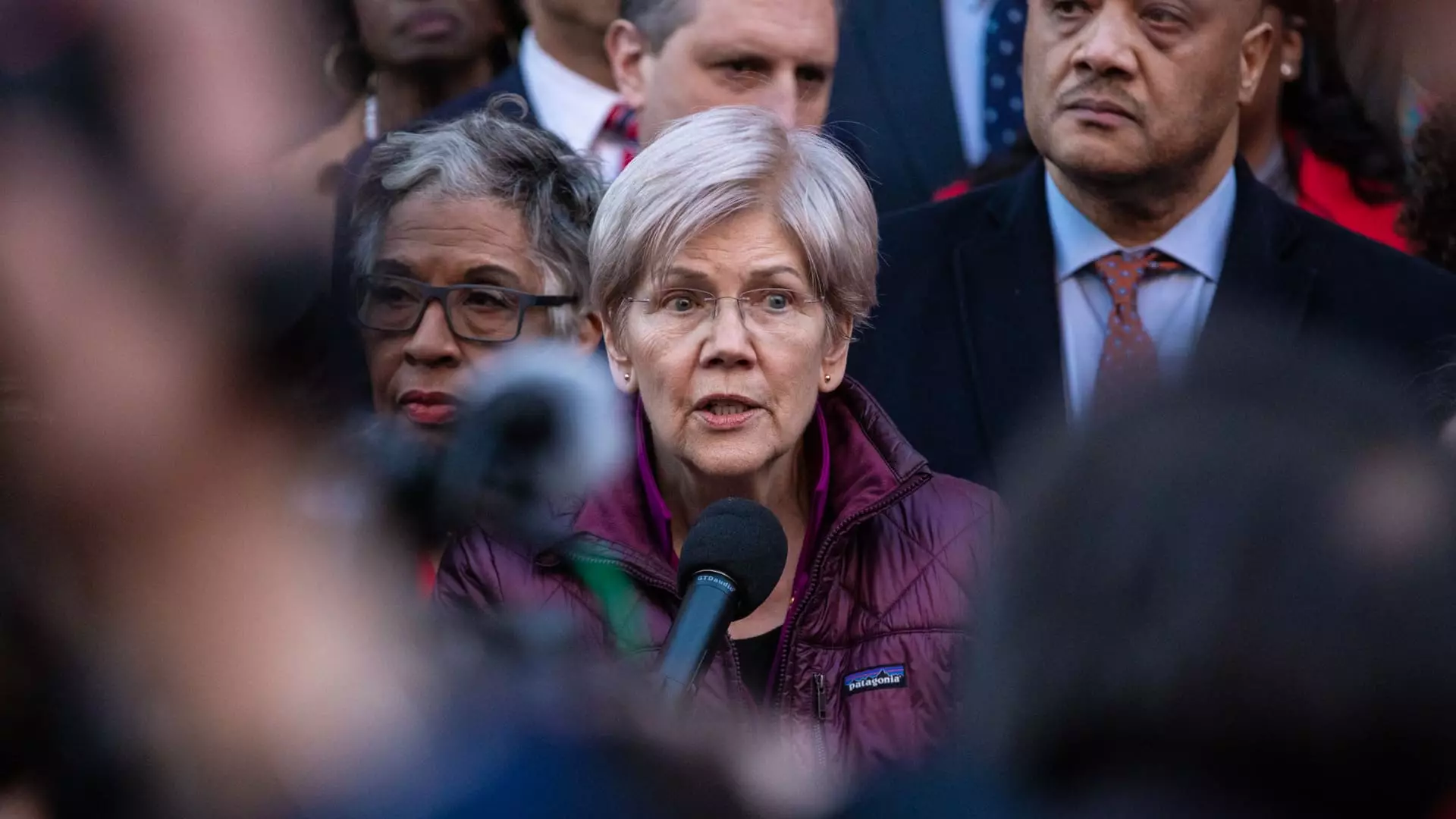The recent decision by President Donald Trump’s administration to reduce the employee base at the Federal Deposit Insurance Corporation (FDIC) has triggered significant concern regarding the stability of the U.S. banking system. Following a request from Senator Elizabeth Warren, the FDIC announced an upcoming review aimed at assessing the repercussions of these job cuts. This initiative comes in the wake of a drastic reduction in FDIC staff—approximately 1,000 employees have been laid off or encouraged to take buyouts. These staffing reductions, ostensibly part of a broader effort to streamline the federal bureaucracy, have incited fears about the agency’s capacity to fulfill its critical role in protecting depositors and maintaining confidence in the banking system.
Senator Warren and several other lawmakers, including Senators Raphael Warnock, Chris Van Hollen, and Lisa Blunt Rochester, have raised alarms about the FDIC’s already compromised ability to effectively oversee the banking sector. In a formal communication to FDIC Inspector General Jennifer Fain, they posited that the recent layoffs endanger the reliable function of the FDIC, which serves as a fundamental pillar for deposit insurance in the United States. This development is alarming because, as the senators pointed out, a diminishment in staffing levels can lead to substantial deficiencies in bank examinations and oversight, potentially undermining the safety of depositors’ funds.
The repercussions of inadequate staffing were emphasized in relation to the failure of Signature Bank in March 2023. The senators asserted that insufficient examiners contributed directly to a series of failures regarding timely supervision. This instance serves to illustrate a critical lesson: a lack of adequate oversight personnel can precipitate crises within the banking system, potentially jeopardizing the Deposit Insurance Fund that protects consumers. The erosion of confidence in financial institutions, stemming from such failures, can have a cascading effect on the overall stability of the banking ecosystem.
FDIC Inspector General Jennifer Fain acknowledged receipt of the lawmakers’ concerns in a letter where she indicated that the long-term implications of these staffing changes remain unclear. The uncertainty surrounding the full-scale effect of a hiring freeze and subsequent layoffs necessitates adaptive measures from the FDIC to mitigate risks. The agency must recalibrate its oversight efforts to address potential vulnerabilities that may arise from compromised staffing levels.
In light of these dynamics, it is essential for the FDIC not only to recognize the immediate impacts of these reductions but also to anticipate and formulate strategies to contend with the nuanced challenges posed by a leaner workforce. The FDIC serves as a key regulatory body that ensures the security of the nation’s financial system, and any significant alterations to its operational capability could reverberate throughout the broader economy.
The situation at the FDIC transcends mere personnel discussions; it encapsulates a philosophical debate about the nature and extent of government oversight in the financial sector. As the Trump administration continues to advocate for reductions across various federal agencies, key questions emerge regarding the balance between efficient governance and the necessity for robust oversight mechanisms that protect consumers and ensure financial integrity.
This situation reflects the prevailing tension between austerity measures and the essential functions that regulatory agencies fulfill. Any perceived savings by reducing headcount must be weighed against the potential costs associated with the instability of financial institutions, which can ultimately compromise public trust and economic growth. As lawmakers like Elizabeth Warren continue to voice concerns, it becomes increasingly clear that a reevaluation of staffing policies must be undertaken with an informed understanding that the health of the banking system is inextricably linked to its regulatory oversight.
As the FDIC embarks on an internal review of the consequences of staffing cuts, vigilance is paramount. Policymakers and stakeholders must engage in deliberate discussions about the appropriate level of oversight necessary for a resilient banking system. This is not merely an operational issue; it is one that influences public confidence in financial systems, affects the livelihood of consumers, and ultimately determines the health of the economy as a whole. The challenges presented by recent layoffs should catalyze a renewed commitment to ensuring stability within financial oversight, emphasizing that safeguarding consumer trust requires adequate resources, strategic foresight, and unwavering dedication.

